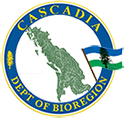Regenerative Earth Apprenticeship Program 2024!
Washingtonis being offered during the summer of 2024 for up to 5 students applicants only Learn to apply Permaculture principles to real life Earth Care. Practice deep observation, getting to know the plants and animals of place through seasons and successions. Practice reading the land, water, weather and life for guidance toward good stewardship. Are you ready to put your hands into the cycle of life, participating in the creation of your own sustenance? Are you a knowledge carrier? Are you ready to receive, learn and pass on the sacred traditions of growing, foraging and preserving food? Are you interested in learning how to work with plants and fungi for healing? This is a special opportunity to take Permaculture out of the classroom and practice and learn stewarding the Earth. Learn with experienced Earth Apprentice, permaculturalist, gardener, herbalist and forager, Terri Wilde. The REAP program is being offered for 3 months, June 15-Sept. 15, 2024 to serious apprentices. We will camp and live in community on Dandelion Hearth Farm in the heart of the North Cascades’s Skagit River Valley in western WA. Apprentices will be engaged for 4 days a week with Intensive instruction, hands on projects, field trips and work exchange. The other 3 days, students are free to explore the beautiful North Cascades, relax in nature, work part time or deepen their studies. The program includes camping, access to food and kitchen and the opportunity to be involved in community cooking, and Regenerative Class instruction with hands on projects. It is being offered for a reasonable $550/ month plus 10 hours a week work exchange (40 hours a month). Curricula for the 3 month program will include: Sense of Place, Botany essentials, Gardening/ Farming basics, Food Preservation, Foraging, Herbal Medicine Making, Nutrition, Energy Flows, Chicken Husbandry, Homestead Skills and More!! We are a delightful community with good food, live music, and a sense of humor. For more information and to download an application go to: www.vivaculture.org






